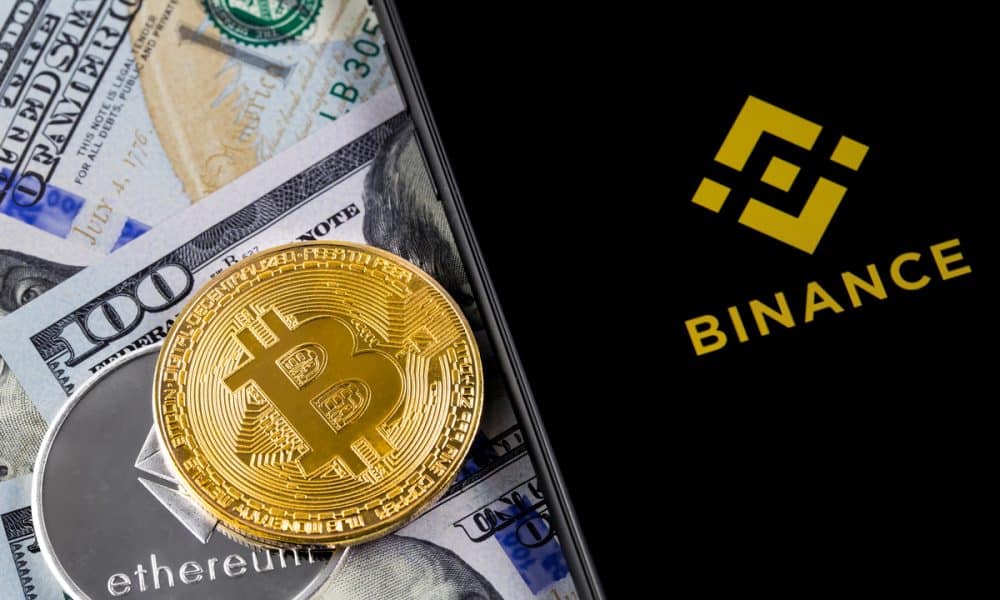On July 8, Changpeng “CZ” Zhao, founder and CEO the world’s largest cryptocurrency exchange, Binance, launched what is likely to become an all-out price war by offering zero-fee bitcoin trades on more than a dozen currencies and stablecoins.
It’s not the first to do that. Stock and crypto exchange Robinhood has been fee-free for quite a while, but it also directs trades to market makers who pay for the privilege, which comes with its own costs.
Binance’s move is a lot harder to ignore. There is no other cryptocurrency exchange that comes close to Binance in terms of size.
On Tuesday (July 12), its spot trade volume was $10.5 billion and derivatives more than $41 billion. By comparison, Sam Bankman-Fried’s FTX had $1.6 billion spot and $5.2 billion in derivatives, and Brian Armstrong’s Coinbase, which doesn’t trade derivatives, had $1.4 billion in spot trading.
While Binance saw a massive increase in bitcoin trading that day, it was so big that Zhao attributed it to investors trying to game the exchange’s VIP system, which gives high-volume traders better fees — which led Zhao to remove those bitcoin pairs from the VIP system.
But if it can attract traders away from competitors — and especially new traders who are interested in getting in while bitcoin is low — it will be hard for other exchanges to ignore.
At least those who can afford to do it. Coinbase, which just laid off 18% of its staff and slowed investing in other projects after poor Q1 trading revenues caused its stock to tank, would be hard put to do so.
But it hurt in other ways. Friday’s announcement followed a similar one by Binance.US on June 22. Coinbase’s shares dropped almost 10% on both days.
CZ’s Reputation
While Binance isn’t as well known as other exchanges in the U.S. — its younger American offshoot, Binance.US, had less than $300 million in spot trades and nothing in derivatives — it is dominant globally, and its founder, known universally by his initials CZ, is one of the most influential voices with the crypto community.
He’s also the richest, with an estimated net worth of $65 billion, whereas Bankman-Fried — the richest U.S. crypto billionaire and No. 2 worldwide — is now worth $24 billion according to Forbes.
And Zhao, like Binance itself, is a lot more controversial.
Barely a month before launching the zero-fee bitcoin trades, Reuters launched an attack on both Zhao and Binance, saying that his deliberate laxness when it comes to anti-money laundering (AML) enforcement has allowed “at least $2.35 billion stemming from hacks, investment frauds and illegal drug sales,” to flow through his exchange.
Binance told Reuters its figures were “inaccurate and overblown,” adding to crypto industry news outlet Decrypt that the article was “woefully misinformed.”
What the allegations were not, however, is new.
Last year, Binance retreated from markets throughout Europe and Asia after regulators in the U.K., Italy, Japan, Thailand, Malaysia, Singapore, the Cayman Islands and the Canadian province of Ontario accused it of operating without a license. It stopped offering derivatives trading in Germany, Italy and the Netherlands, and stopped using the European Union’s Single Euro Payments Area (SEPA) network that July. It regained SEPA access in January.
In February, Britain’s Financial Conduct Authority (FCA) expressed concern about a deal giving Binance access to the Paysafe payments network. That came after Binance lost access to the country’s Faster Payments network in 2021, after the FCA ordered it to “stop all regulated activities in the country.”
Binance is also reportedly under investigation in the U.S. by the Internal Revenue Service, Commodity Futures Trading Commission (CFTC) and Securities and Exchange Commission (SEC) for the weak to nonexistent know-your-customer (KYC) policies it used for years, which in many cases reportedly amounted to needing nothing more than an email address.
In From the Cold
In November, Zhao reacted to the onslaught of enforcement actions by effectively promising to turn over a new leaf, starting with creating an actual headquarters for the firm, which for years was “based” wherever Zhao hung his hat.
Binance, he said on Nov. 16, had “chosen to go with full compliance, full mandatory KYC for global users, for every feature [as] we feel that being compliant will allow more users to use us. Most people do feel more comfortable using a licensed exchange.”
Which still left it very late to the game for a major global exchange.
It has since kept adding to its compliance staff, telling Reuters that it was building “the most sophisticated cyber forensics team on the planet” in order to “further improve our ability to detect illegal crypto activity on our platform.”

